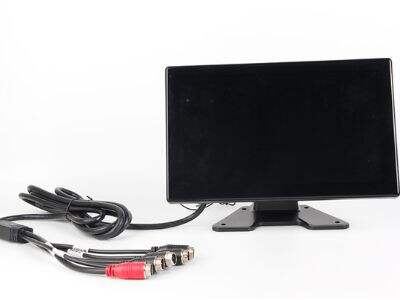Water level sensors are devices that allow a person to monitor the level of water in a tank or a large storage container known as a reservoir. It is very important to choose the water level sensor as it will ensure you get accurate measurements and can monitor the water. The type of sensor, the application of use are a few factors to consider while choosing a water level sensor.
What Are Water Level Sensors?
Water level sensors are devices that can measure the height of the water in a tank or reservoir. They have widespread applications such as in agricultural fields, factory settings, and as environmental monitors. Keeping track of water levels keeps too much from spilling over or not enough from filling up that could damage machines or plants.
Water Level Sensor: Important Considerations to Keep in Mind
There are a few key considerations that you should consider when selecting a water level sensor. One key thing is what type of sensor you want for what you are doing. As mentioned, some types of water level sensors include float switches, ultrasonic sensors, and pressure sensors. Each type functions in its own way and is suited for different scenarios.
I have covered different types of water level sensors.
Float switches are sensors that consist of a float that rises and falls with the water level. When the foat reaches a certain height, it sends an input to indicate the water level. Ultrasonic sensors measure the distance from the sensor to the water using sound waves. To detect how heavy the water is in the tank, pressure sensors are deployed.
How to Choose the Right Water Level Sensor for Your Needs
Consider water level sensor r properties such as its temperature and density to select the right water level sensor for your application. You are also required to consider the size and the shape of the tank or reservoir and whether any interfering items block the proper working of the sensor. However, you will need to make sure that you are selecting one that is suited for what you are looking for.
How to Check Water Levels Properly
The 77G Radar Sensor needs to be calibrated and checked periodically for anything that would obstruct or make it inoperable for measuring water levels accurately and reliably. It is additionally a good idea to add a backup sensor as a safety measure in case the main one fails. Caring for the sensor and monitoring it regularly should prevent any issues and ensure the sensor detects the water level accurately.
To sum up, selecting proper water level sensor will provide you accurate information about water levels in tanks and reservoirs. Considering these factors will help you select the type of sensor that best suits your needs, ultimately giving you the right tools for the job. If maintained well, your water level sensor will give accurate readings for years to come.

 EN
EN
 AR
AR
 HR
HR
 CS
CS
 DA
DA
 NL
NL
 FI
FI
 FR
FR
 DE
DE
 EL
EL
 IT
IT
 JA
JA
 KO
KO
 NO
NO
 PL
PL
 PT
PT
 RO
RO
 RU
RU
 ES
ES
 SV
SV
 IW
IW
 ID
ID
 LV
LV
 LT
LT
 SR
SR
 SK
SK
 SL
SL
 UK
UK
 SQ
SQ
 ET
ET
 HU
HU
 TH
TH
 TR
TR
 FA
FA
 AF
AF
 MK
MK
 KA
KA
 UR
UR
 BN
BN
